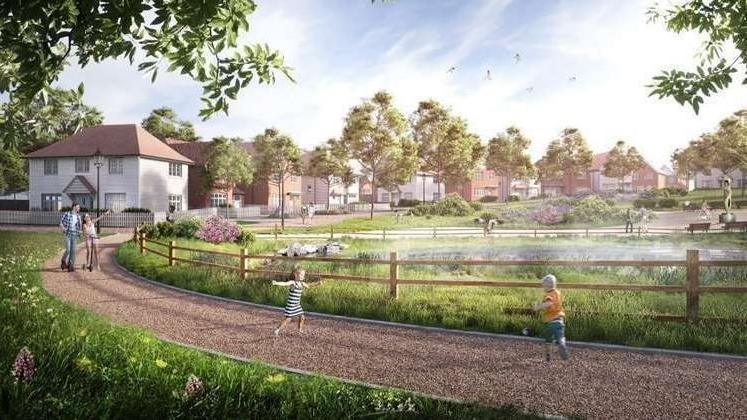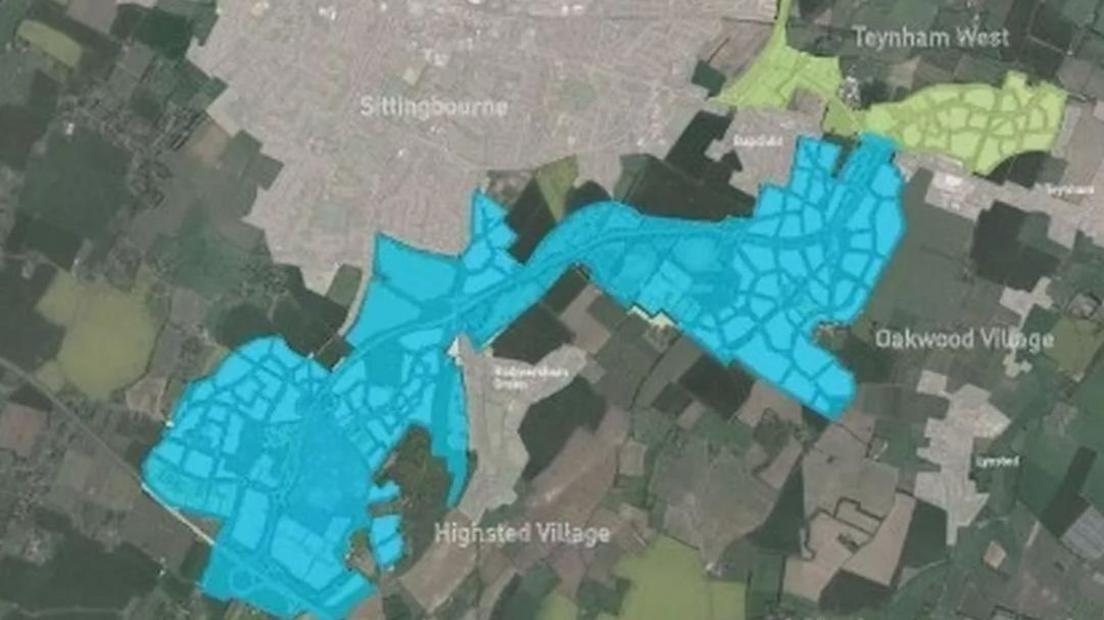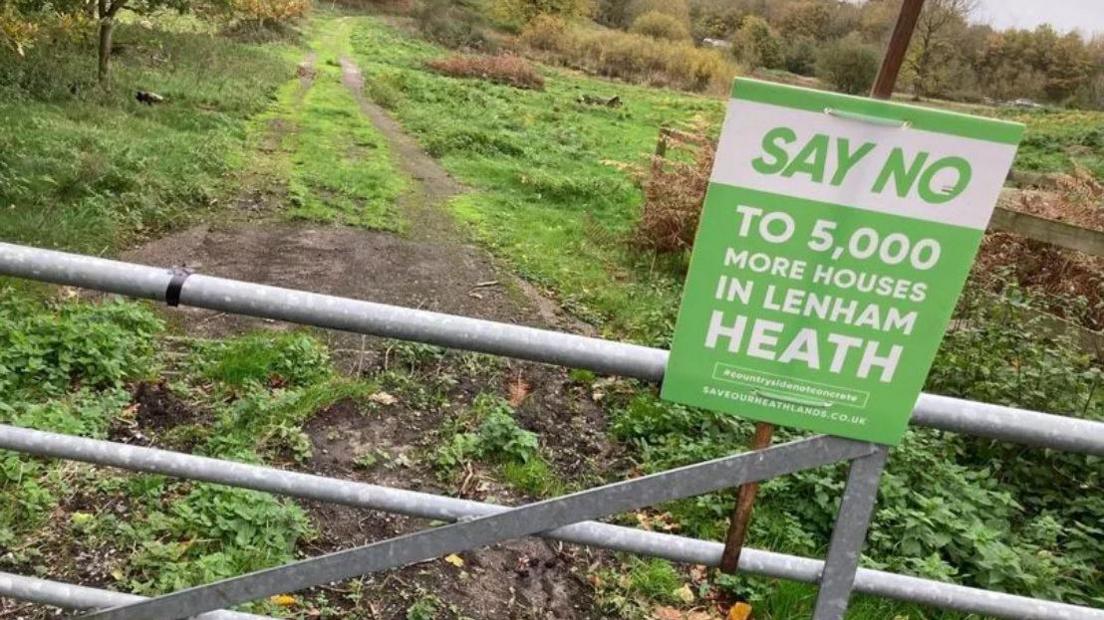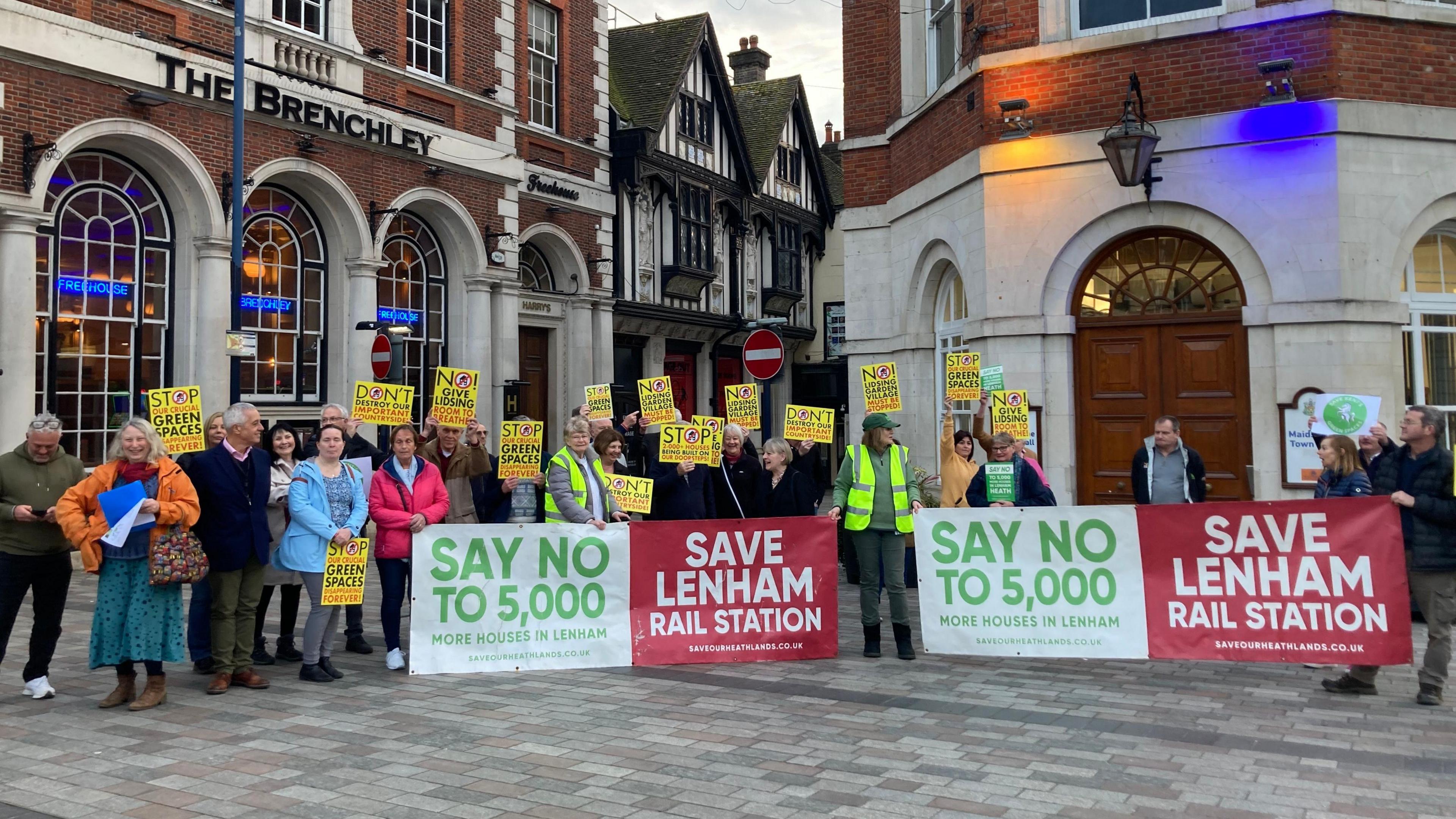Plans for huge garden village facing rejection

How the Highsted Park development could look
- Published
Plans for what could be one of the UK’s largest housing developments look set to be refused.
Developers behind the proposals for a 8,400 home “garden village” in rural Kent claim it is “entirely suitable” for the area.
However, the bid has attracted almost 700 letters of objection from campaigners, with some calling it a “deadly mistake”.
They say the scheme would double the local population, increase traffic and have a huge detrimental effect on the environment.
Split into two applications on the edge of Sittingbourne and Teynham, Quinn Estates' plans also contain outdoor spaces, a hotel, sheltered accommodation, a new tip and primary and secondary schools.
In addition, there will be provision for a new M2 motorway junction and the creation and completion of southern and northern relief roads.
Quinn Estates argue the proposals are "entirely suitable in terms of land use, amount of development, access, layout and appearance".
Describing it as a "vibrant garden village", they added it answers the "desperate need" for more homes and will significantly benefit the surrounding area.
The firm also called it “the most sustainable development in the south east”.

The developments are to be called Highsted Village, Oakwood Village and Teynham West
Much of the land earmarked for development is high grade farmland.
Carol Goatham, of campaign group Farm, Fields & Fresh Air, said: “All that being concreted over for more housing would set an awful precedent for every other developer in the borough.
“I think it would be a deadly mistake for Swale Borough Council (SBC) to let it go through.”
And SBC officers are recommending councillors reject the plans at next month's planning committee meeting, adding Quinn Estates has failed to prove the scheme would not harm the area's rurality and wildlife habitats.
A Quinn Estates spokesman said its proposals had received "strong support" from local businesses and called the council's decision a prime example of “local politics standing in the way of national infrastructure”.
The company also rejected as financially unviable SBC's policy that 40% of all new homes in such developments should be affordable - namely, sold or rented well below market rate.
Follow BBC Kent on Facebook, external, on X, external, and on Instagram, external. Send your story ideas to southeasttoday@bbc.co.uk, external or WhatsApp us on 08081 002250.
Related topics
Related stories
- Published17 October 2024

- Published21 March 2024
